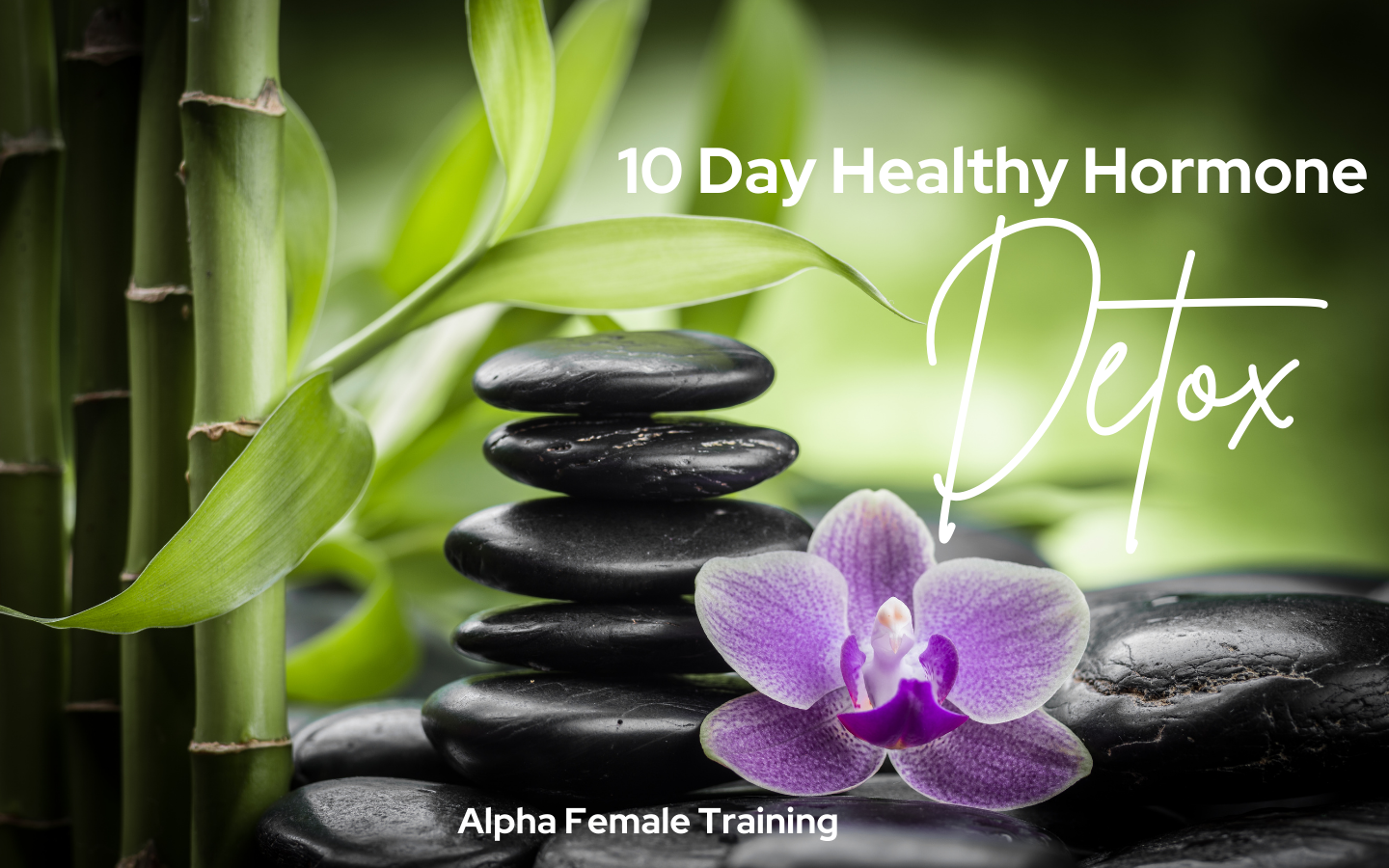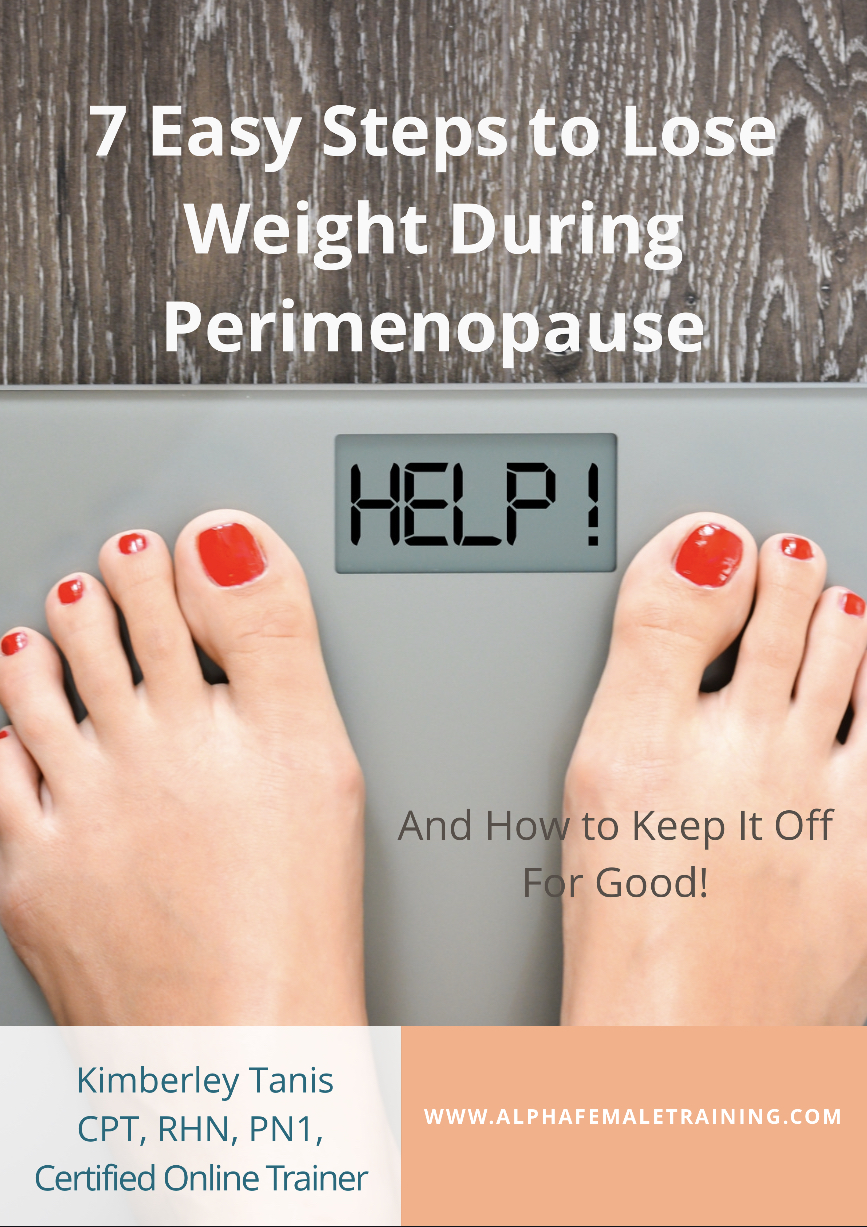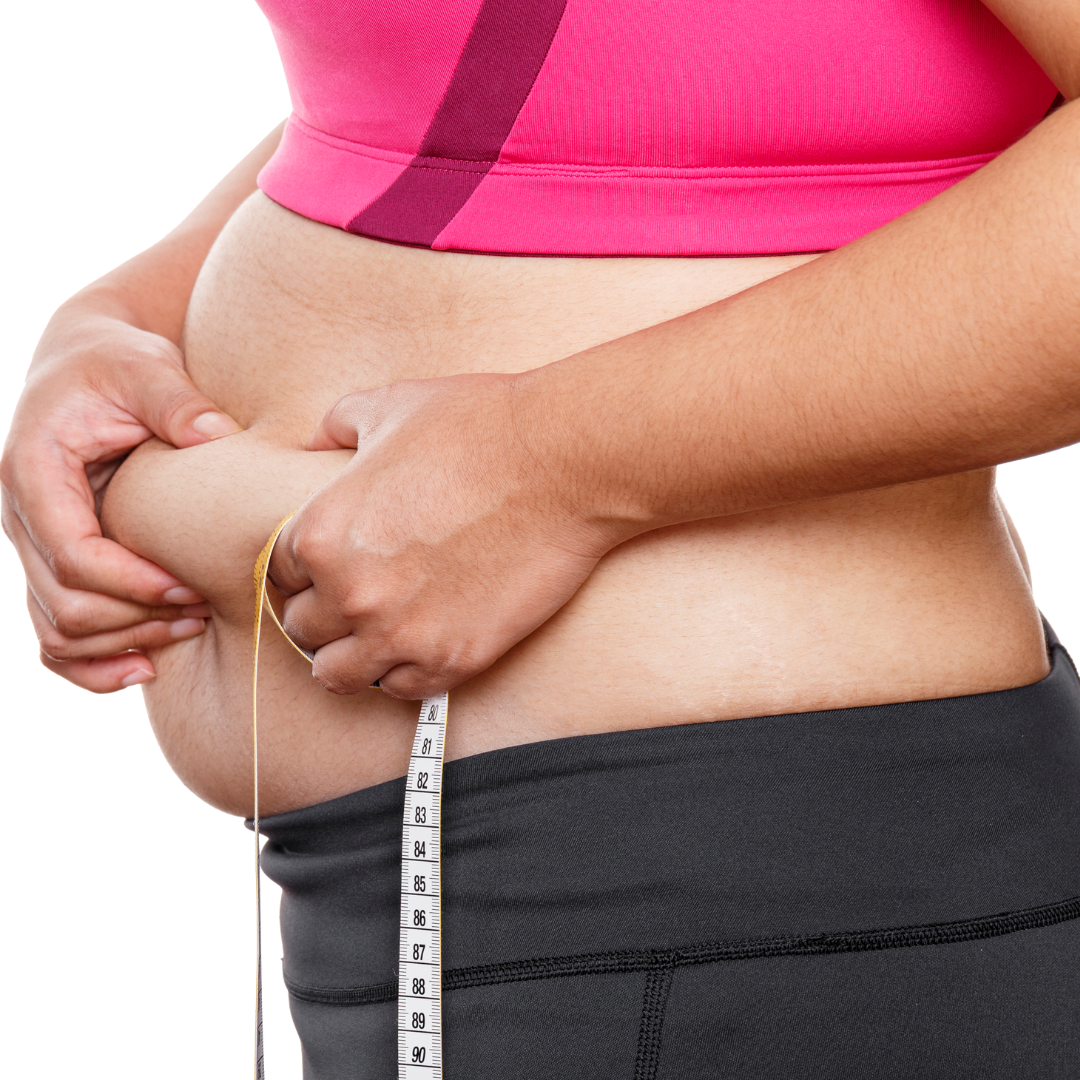Does perimenopause cause acne
As a woman in perimenopause, you may be wondering does perimenopause cause acne and find yourself in the midst of primping for a big event when you suddenly spot a new pimple on your face. It's frustrating and embarrassing to deal with adult acne, especially when you thought you left those blemish-filled days behind. But don't worry, you're not alone in this struggle.
It's common to wonder why you're still getting zits in your thirties or forties. Let's uncover the truth about this issue and figure out why you're still dealing with these pesky pimples, even during perimenopause.
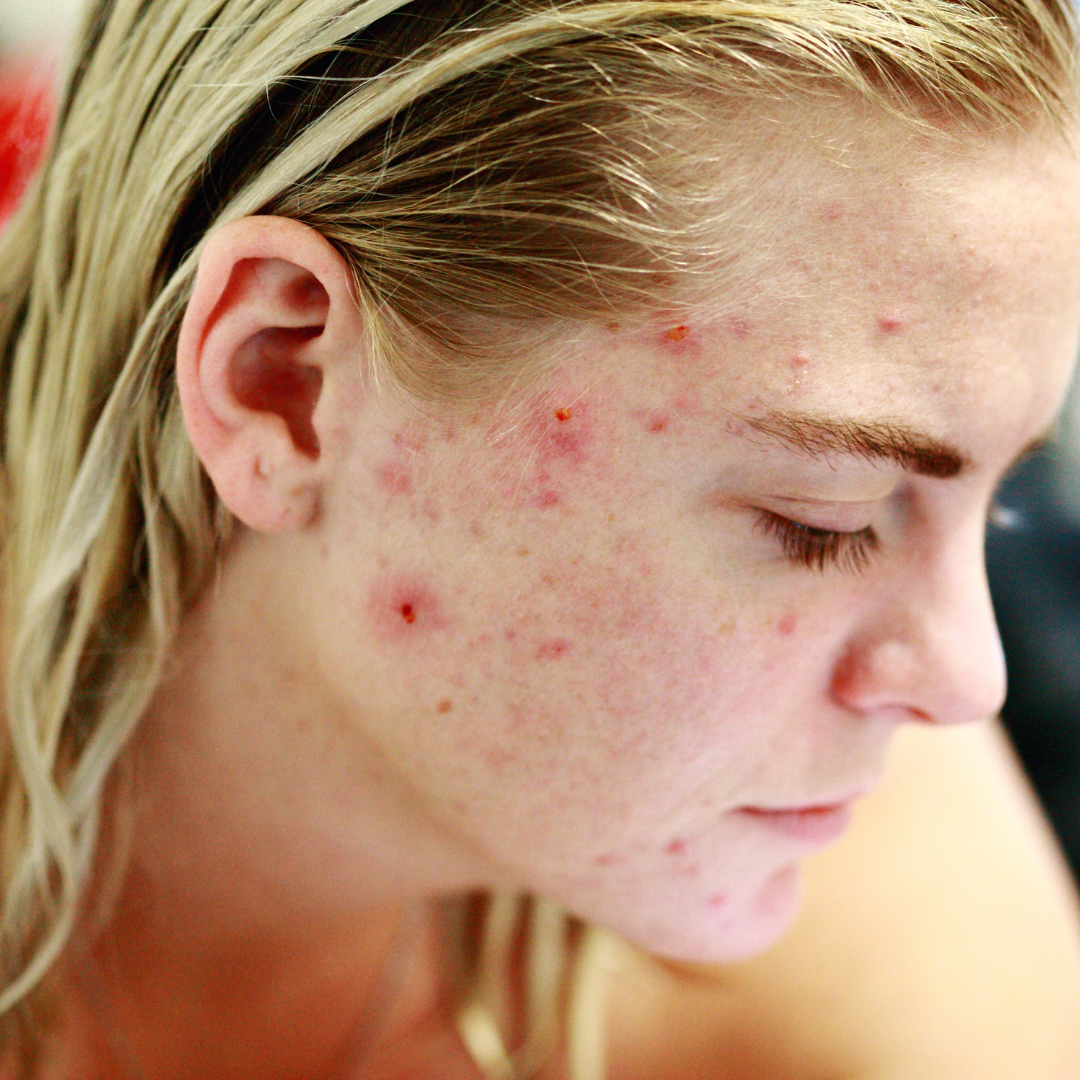
What is Adult Acne, and what causes it?
Acne is commonly associated with the inflammatory skin condition that occurs during puberty. However, it may come as a surprise that acne affects 20% of Canadians and is the most prevalent skin condition in the US, impacting up to 50 million Americans. Adult acne is a term used to describe breakouts that occur during the adult years and includes blackheads, whiteheads, pimples, and cysts. While acne can appear on any part of the skin, it is more frequently found on the face and neck but can also occur on the shoulders, back, chest, under the breasts, and upper arms.
Nevertheless, there are two significant differences between adult acne and the kind experienced during adolescence. Firstly, adult acne typically appears on the lower half of the face, such as the chin and jawline, while teen acne typically appears on the upper half, including the forehead, nose, and cheeks. Secondly, adult acne is often deeper and can present as under-the-skin pimples, also known as cysts, which cannot usually be drained.
If you experience acne during adulthood, it is commonly attributed to a few key culprits.
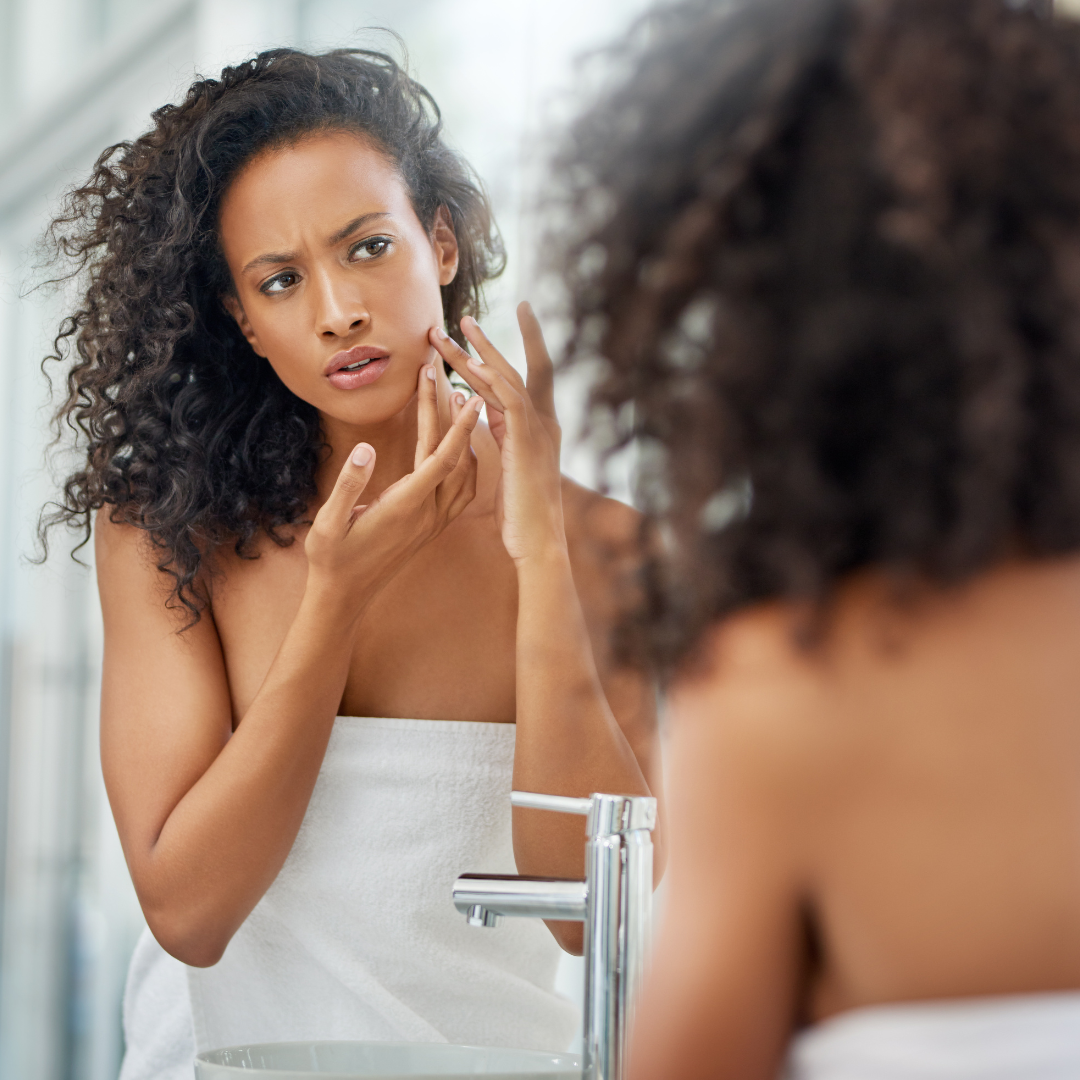
So does perimenopause cause acne?
During perimenopause, hormonal imbalances can contribute to the development of acne. This may occur after starting or stopping hormonal birth control methods or experiencing hormonal shifts, such as those that occur during a woman's menstrual cycle (known as 'cyclical acne'). Pregnancy, perimenopause, menopause, and medical conditions involving hormonal imbalances like polycystic ovarian syndrome (PCOS) can also contribute to acne.
Interestingly, some women may experience acne for the first time in adulthood, having avoided it altogether during their teenage years and be asking does perimenopause cause acne in addition to everything else? . This type of acne, known as "adult-onset acne," is particularly common among postmenopausal women due to significant hormonal changes occurring during this time.
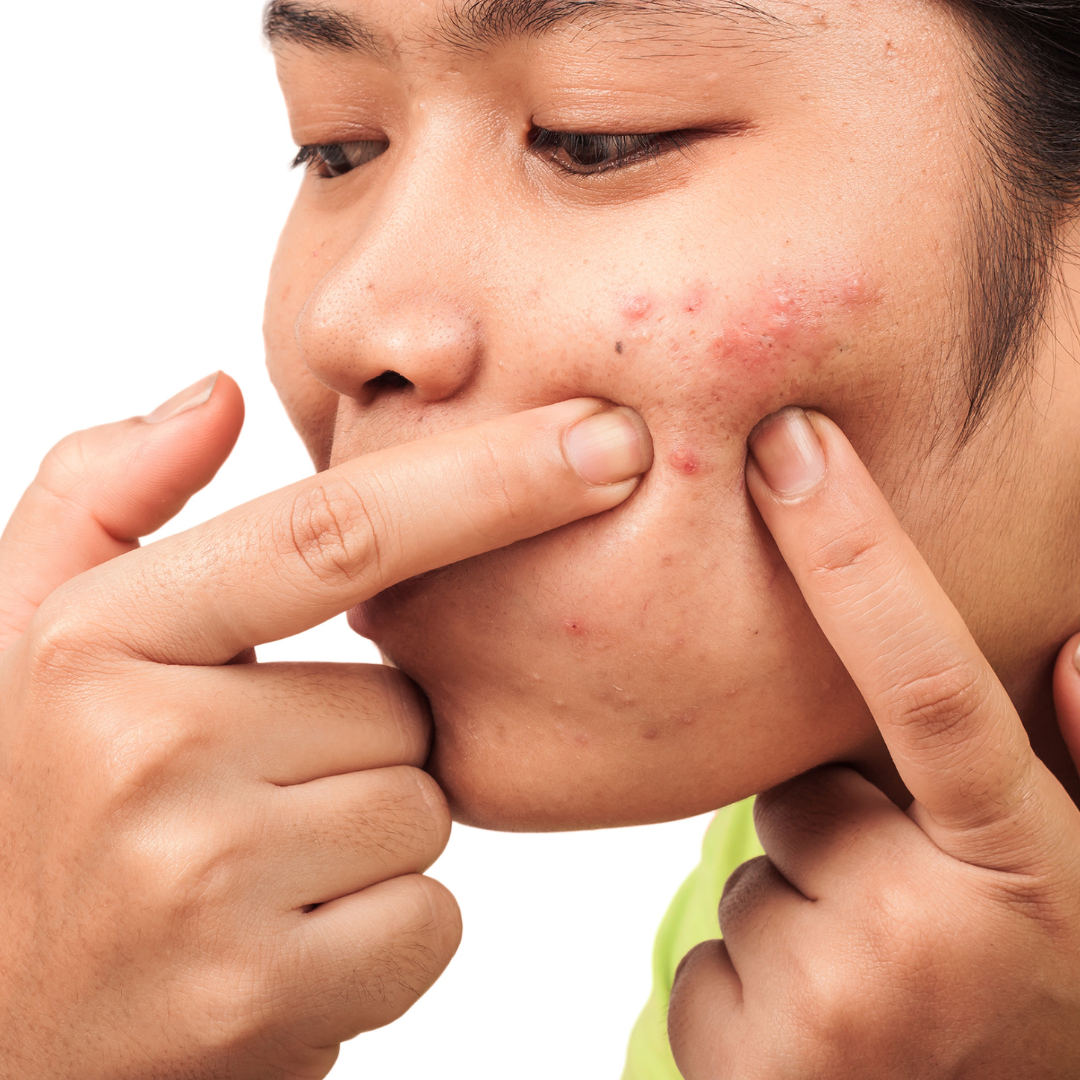
DIET
& NUTRITION
The connection between diet and acne has been a topic of debate over the years. However, recent scientific studies indicate that high-carbohydrate diets may increase the likelihood of developing acne. This could be due to the elevated impact that consuming excessive amounts of refined carbs has on blood sugar levels and the hormone insulin.
It is important to note that the role of diet in acne is still being studied and understood. While high-carbohydrate diets have been implicated, other dietary factors may also contribute to acne development. For instance, dairy products have also been suggested as a possible cause of acne due to the presence of hormones and growth factors that can impact skin health.
STRESS
& INFLAMMATION
Stress can cause a release of inflammatory chemicals called neuropeptides and a domino effect of hormonal shifts which can worsen acne. Women in perimenopause are usually undergoing chronic stress. So does perimenopause cause acne? Yes it can.
Think about that huge pimple that invariably makes its appearance before a big date -- because even “good” stress, like anticipating an important event, can trigger a breakout. Hi there wedding day pimple :(
Stress also increases the severity of breakouts by making pore cells thicker, stickier and therefore, more clogged. The results are more inflamed, red and painful pimples.
“Researchers have found a relationship between stress and
acne flare-ups. In response to stress, our bodies produce more androgens. These
hormones stimulate the oil glands and hair follicles in the skin, which can
lead to acne. This explains why acne can be an ongoing problem when we find
ourselves under constant stress.”
~ American Academy of Dermatology
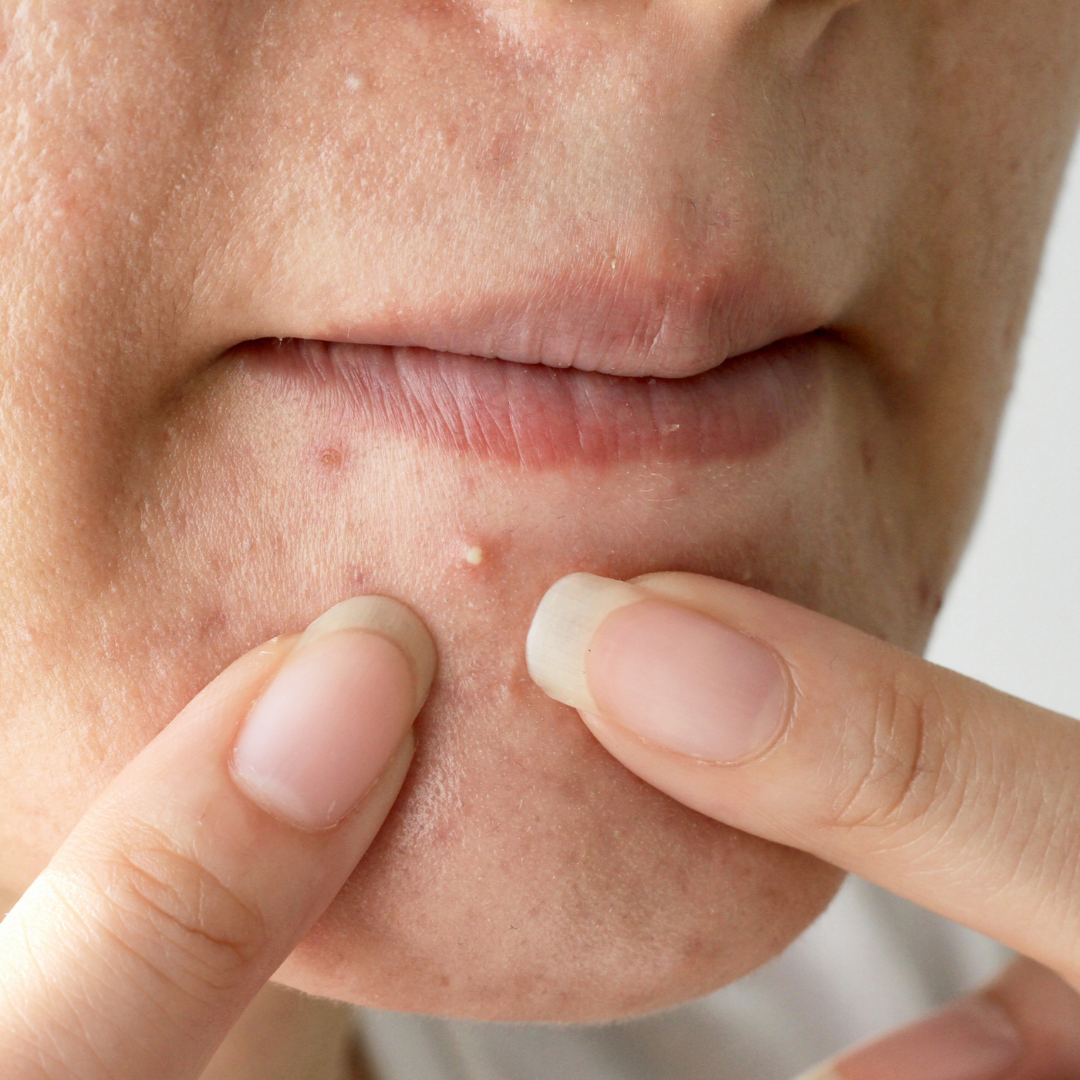
Perimenopausal acne may be caused by a range of factors, including:
- Family history or genetic predisposition, which can increase the likelihood of developing acne.
- Gut health and digestive issues, which can impact the body's ability to process certain foods and nutrients and can lead to inflammation and hormonal imbalances that contribute to acne.
- Use of commercially-made hair and skin products, such as make-up removers and sunscreens, which can clog pores and irritate the skin.
- Facial hair removal techniques, like tweezing, which can cause inflammation and ingrown hairs that contribute to acne development.
- Changes in environment, including traveling, which can expose the skin to new bacteria and environmental factors that may trigger acne.
- Side effects from certain medications, which can impact hormonal balances and contribute to acne development.
Treatment for perimenopause acne
There are a plethora of treatments available for perimenopausal acne, such as topicals containing benzoyl peroxide, salicylic acid, and sulfur. Some of these treatments are marketed as miracle cures. However, the truth is that there is no magic bullet for treating acne. We believe that trying a natural treatment approach is always the best place to start.
That's why I've created a DIY natural beauty toner recipe using ingredients you may already have in your bathroom cupboard. However, if you find that your acne is completely resistant to natural treatments such as aloe vera, lemon and honey, or over-the-counter remedies, it's important to seek guidance from a knowledgeable health practitioner. They can investigate underlying gut issues and provide a more definitive diagnosis and appropriate course of action.
I get it… you're working hard, taking care of your family and doing what you can to stay healthy and survive the perimenopausal years and adult acne is just one more thing to have to deal with! So, while you’re waiting patiently for it to clear, don't forget to give yourself some much-needed attention and self-care. (remember the stress connection!)
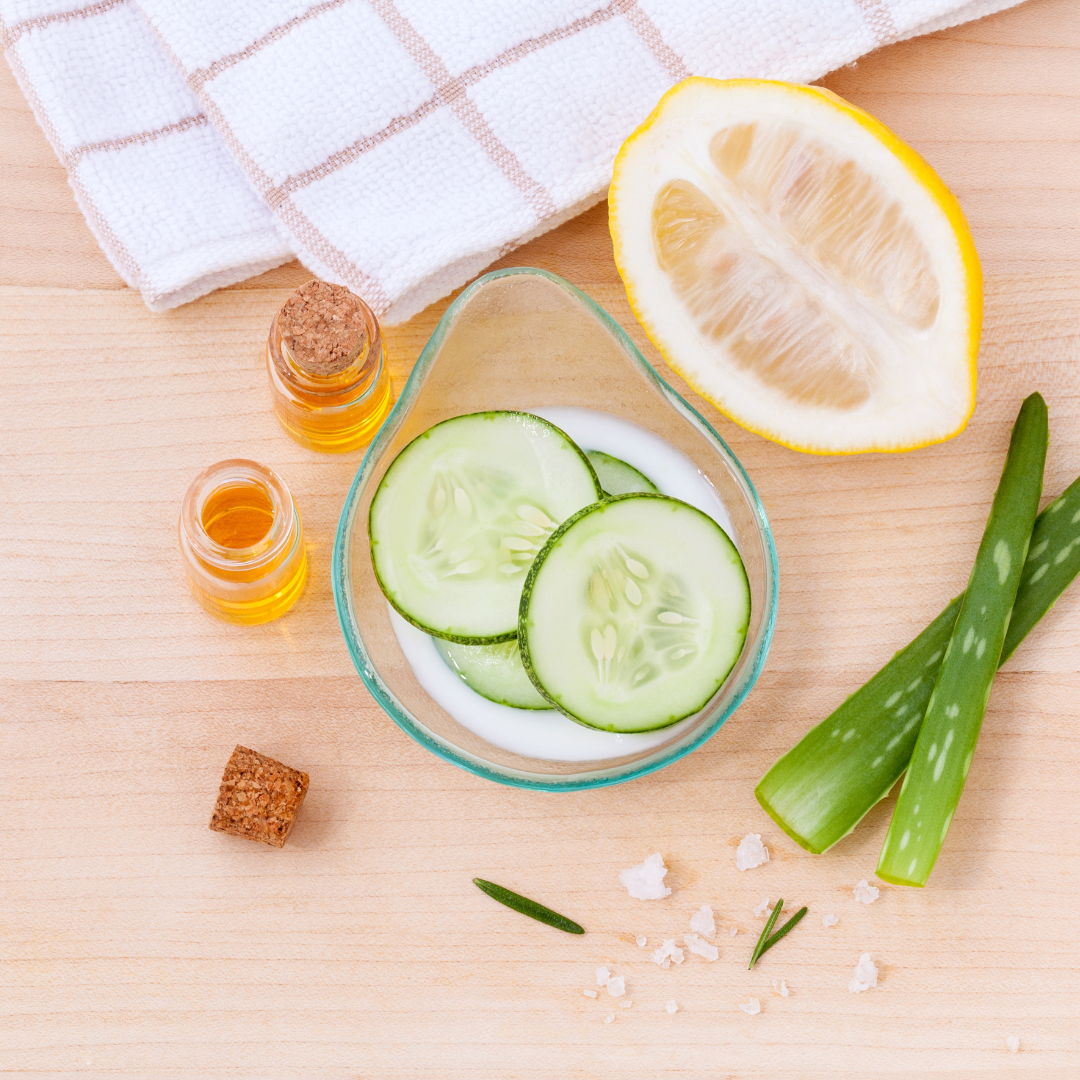
Natural Blemish-Calming Natural Beauty Toner Recipe
* Makes 1 cup
Ingredients
½ cup purified water
¼ cup witch hazel, without added alcohol
¼ cup apple cider vinegar (ACV), unpasteurized (with the “mother” in it)
2-3 drops tea tree oil (can sub with lavender or rosemary essential oil)
Pour all ingredients in a clean, sealable container - squeezable or misting bottle suggested.
Why You Should Heal Your Gut If You Want Clear Skin


